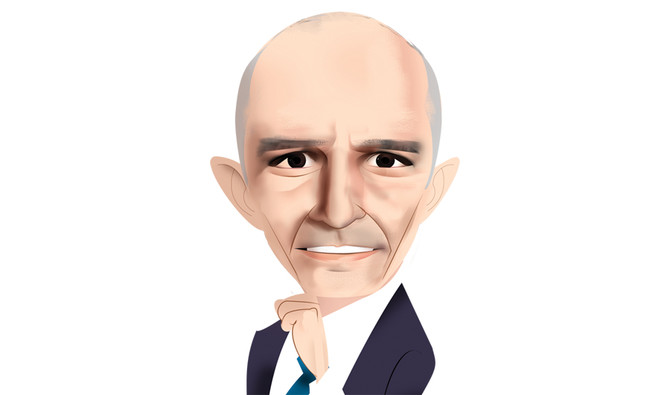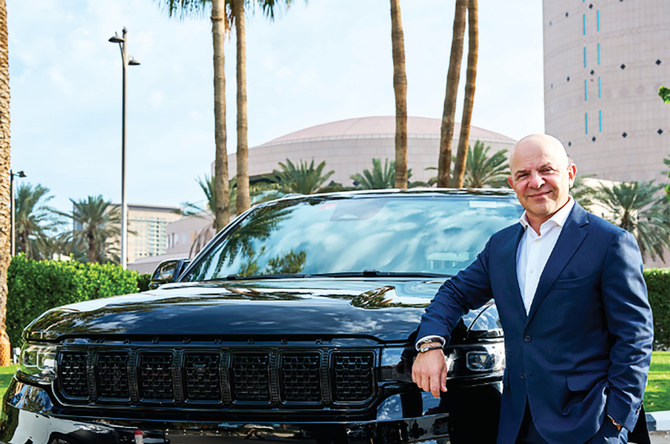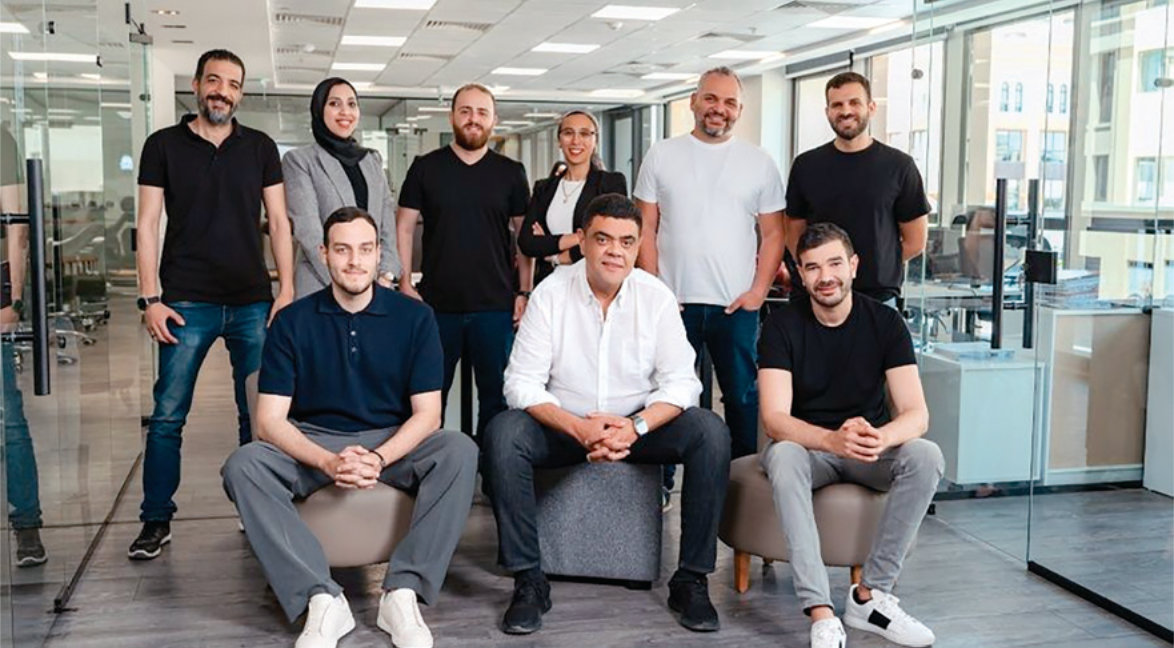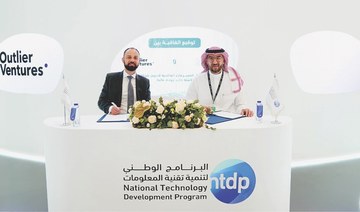“North Riyadh will be the place to be,” declares Selim Chidiac, chief executive officer of L’azurde, Saudi Arabia’s biggest jewelry company and a glitzy reminder that the Kingdom has brands of its own to rival the global icons of the luxury business.
Chidiac was talking of the sudden boom in the Saudi retail business that is seeing malls open at an unprecedented rate. “There are so many new malls going up, like Riyadh Park and others. The prospects for the next 18 months are very exciting and dramatic,” he said.
Most of L’azurde’s shops in the Kingdom are in malls, with only a small number on the street or in souks, so the retail and leisure boom — sparked by the decree to allow women to drive and the re-opening of the Kingdom’s cinemas after a 35-year hiatus — is a direct boost to the L’azurde business.
But that does not mean Chidiac can just sit back and watch the business come rolling in. Despite the retail boom, the underlying economy is still suffering from the aftermath of the period of austerity ushered in by the collapse in oil prices in 2014.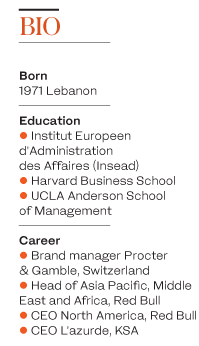
“The consumer background in Saudi Arabia is still challenging. There have been lots of changes in the Kingdom, such as the removal of subsidies and perhaps some geopolitical concerns. But ultimately, what has been happening is very positive for the economy. Raising salaries and empowering women are good developments, and they will pay off in the medium and long term,” Chidiac said.
The influence of the regional macro-economy was shown in L’azurde’s recent financial figures for the second quarter of 2018. A overall rise of 13 percent in revenues masked a decline in Saudi revenues, compensated by a leap in the company’s important Egyptian business.
“Most of the growth came from Egypt. Saudi Arabia was actually 10 percent down, but the comparison is not entirely indicative — the same period last year was very big, boosted by the resumption of government spending and the Ramadan period,” he explained.
Chidiac is full of praise for the strength of the Egyptian division of the business, which has three factories, 12 shops and 1,200 employees. “Egypt has been a great story. We’ve been there for 20 years and it has seldom looked so strong before. Consumer spending is high and the stock market is strong,” he said.
“The government reforms of a couple of years ago and the IMF deal benefited the economy and stabilized the currency, which has made our exports easier. Better security enabled tourism again, and also helped attract foreign direct investment. There is now a growing middle class in the country with greater spending power,” he added.
The situation in Saudi Arabia is more complicated, but in the long term Chidiac thinks the country is in for a period of expansion.
“Saudi consumers are getting behind the reform program of Mohammed bin Salman, the crown prince. The economic situation is improving. For a while people have been going into shops to look around and ask about products, but slowly they are beginning to spend too.
“The empowerment of women is beginning to be felt. They are more mobile, and actively seeking jobs now. It is too early to judge the impact of allowing women to drive. It is only a few months now since the ban was lifted. But long term it has to be a good thing for the consumer economy,” he said.
The jewelry tastes of Saudi women — overwhelmingly L’azurde’s target customer — are changing subtly. The move is towards more affordable everyday pieces, such as the “Dream collection” — designed by Al-Anoud Badr, the founder of the fashion brand Lady Fozaza — which aimed to have a trendy edge.
“The Dream collection is our most popular line at the moment. They are the fastest-selling items for daily wear, ranging in price from 1,500 ($400) to 5,000 riyals,” Chidiac said.
More traditional lines are still a big feature, however. “Still our bestselling and most profitable pieces are wedding sets — complete ranges of necklaces, pendants, earrings rings. We had a very good Ramadan for these items. These can range from 15,000 to 100,000 riyals, but we’ve sold customized sets for as much as 1 million riyals,” he said.
The global trend toward more affordable everyday jewelry was the spur for the purchase of the Tous chain of jewelry stores, the most significant corporate development at L’azurde since the 2016 initial public offering (IPO).
“With Tous, we are entering the segment of affordable jewelry for the first time — the market for purchases of less than 2,000 riyals. This is the fastest-growing sector in the world at the moment. Women want smaller pieces for daily wear, and they want to change them more frequently. Tous is the leading affordable jewelry brand in Saudi Arabia, with 22 shops and 90 employees in the Kingdom, and we have bought a 10-year Saudi franchise,” Chidiac said.

Illustration by Luis Grañena
There was a second motivation for the Tous purchase. Since the IPO, L’azurde shares are about 50 per cent down from the listing price, and Chidiac has been looking for a long time for a deal that might add some momentum to the share price performance.
“The acquisition of Tous was a major event for us. We’ve been working on it for 18 months, ever since the IPO. The analysis and due diligence took more than a year. The logic of going public was to fund organic growth, and then we began to look at ways to grow non-organically.
“That’s why we did the acquisition of Tous — to give some value back to the shareholders. That has been a major concern. We are not considering share buy-backs. I believe the prospects for the Tadawul are pretty good, as long as there are no major external shocks,” he said.
The logic of the Tous deal should be immediately apparent to shareholders, Chidiac explained. “We paid 188 million riyals for a company that has revenues of 18.8 million riyals, so it is immediately earnings enhancing. We paid in part cash and part debt funded. Now we must consolidate it and grow it, while looking for other opportunities,” he said.
“Tous helps move L’azurde towards being a multi-brand company. We will add more brands, soon, but we should walk before we can run,” he added.
Those other opportunities include opening new stores in Saudi Arabia and Egypt, and perhaps more acquisitions. But there are always challenges in a business as fast moving as jewelry, where taste and fashion can quickly affect demand for the latest goods.
“Customers are becoming very savvy with their spending, looking for discounts and promotions. They are becoming very aware of their choice options. The most common thing we hear from a customer walking into a shop is “what’s new?”. It means we have to manage our stocks effectively.
“There are also challenges with employees — hiring, training and employment conditions. But that has always been the case,” Chidiac said. Most of the 700 employees at the Riyadh factory are Asian, he said, because “Asians have better technical skills in jewelry.”
And, as ever, the geopolitics of the region weighs over business decisions. L’azurde had an operation in Doha that was closed as soon as the confrontation began last summer over allegations of terrorism. Another possible acquisition deal in the UAE was stymied because of Qatari links, he said, without wanting to identify the target company.
Global economic factors also affect L’azurde’s business decisions. The gold price is not a major factor, because the company does not hold stocks of gold beyond its immediate need for manufacturing in Saudi Arabia and Egypt, but it can affect demand.
“It does affect customer sentiment when they see the gold price falling and they see the opportunity for a bargain. The dollar level and interest rates are bigger concerns for the economy and for our business,” he said.


